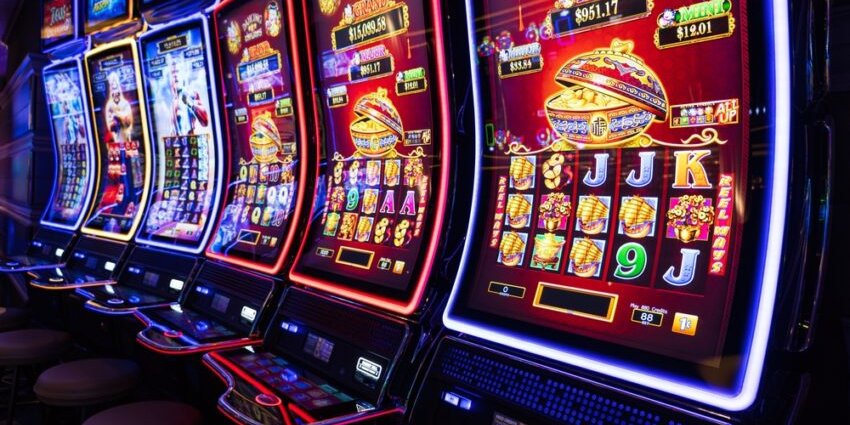The UK market is witnessing a fascinating convergence between two industries that have traditionally been distinct: gambling and gaming.
While gambling has long been associated with casinos, sports betting, and other forms of wagering, gaming has evolved from simple arcade pastimes to a multi-billion-pound industry encompassing consoles, PCs, and mobile devices. Today, these two worlds are increasingly overlapping, creating new opportunities and challenges for businesses and consumers alike.
The Evolution of Gambling and Gaming in the UK
A Historical Overview of Gambling
has a rich history, dating back centuries, with roots in traditional activities such as horse racing, card games, and, later, football pools. The introduction of the Gambling Act 2005 was a significant milestone, bringing about more comprehensive regulation and fostering a more open market for both land-based and online gambling operators. This regulatory environment has allowed the industry to thrive, with the UK now home to some of the world’s leading gambling companies.
The Rise of Video Gaming
Parallel to the evolution of gambling, the gaming industry has undergone its transformation. From the early days of arcade games in the 1980s to the explosion of console gaming in the 1990s and the subsequent rise of online and mobile gaming, the industry has expanded rapidly. In recent years, the UK has become a major player in the global gaming market, with a growing community of gamers and a thriving development scene. The introduction of smartphones and digital platforms has further accelerated this growth, making gaming accessible to a broader audience than ever before.
Points of Convergence
As both industries have evolved, the lines between gambling and gaming have started to blur. Digital transformation has played a significant role in this convergence, with many gaming platforms incorporating elements traditionally associated with gambling, such as chance-based rewards and in-game purchases. This crossover has created new avenues for engagement and revenue generation, attracting the attention of businesses eager to capitalize on this trend.
Current Synergies Between Gambling and Gaming
The Gamification of Gambling
One of the most prominent synergies between gambling and gaming is the gamification of gambling platforms. Many UK gambling companies have adopted gaming elements to enhance user engagement, introducing features like loyalty rewards, achievements, and interactive interfaces. For example, online casinos now offer games with complex narratives and immersive graphics, resembling video games more than traditional slot machines. This gamified approach not only attracts a younger audience but also increases the time and money spent on these platforms.
Casino Bonuses: Free Cash No Deposit Bonuses
A significant attraction in the gambling industry, particularly for online casinos, is the variety of bonuses offered to players. These bonuses, including free cash no deposit bonuses, are designed to draw in new users and keep existing ones engaged. A no deposit bonus allows players to start gambling without having to invest their own money upfront, offering a risk-free introduction to a casino’s offerings. This is similar to how free-to-play games in the gaming industry entice players by offering them the chance to play without an initial financial commitment.
These bonuses are a clear example of how gambling companies are adopting strategies from the gaming industry to enhance user experience and retention. The appeal of getting something for free, whether it’s extra spins in a casino game or a loot box in a video game, taps into the same psychological triggers that keep players engaged and coming back for more. As the competition in the online casino market intensifies, the use of creative bonuses like these is likely to increase, further blurring the lines between gaming and gambling.
Gambling Mechanics in Video Games
Conversely, gaming has incorporated mechanics typically associated with gambling. The rise of loot boxes, in-game purchases, and microtransactions has sparked significant debate in the UK. These mechanics, which often involve spending real money for a chance to obtain rare or valuable in-game items, have been likened to gambling. This has led to discussions about the ethical implications and the need for regulatory oversight. The UK government has already taken steps to investigate these practices, considering whether they should be regulated as gambling.
Cross-Industry Collaborations
Another area where gambling and gaming intersect is through cross-industry collaborations. Some gambling companies have partnered with game developers to create unique gaming experiences that blend elements of both worlds. For instance, there are now slot games based on popular video game franchises, combining familiar characters and themes with the excitement of gambling. These collaborations have proven successful, drawing in fans from both industries and creating new revenue streams.
Business Implications of the Convergence
Market Opportunities
The convergence of gambling and gaming presents significant opportunities for businesses. By leveraging the strengths of both industries, companies can create innovative products that appeal to a wide audience. For example, developing games that incorporate both entertainment and gambling elements can attract gamers who enjoy the thrill of chance, as well as gamblers looking for a more engaging experience. Additionally, the use of advanced data analytics and personalized marketing can enhance customer engagement and retention.
Regulatory Challenges
However, this convergence also brings regulatory challenges. The UK has a robust regulatory framework for gambling, but the integration of gaming elements into gambling platforms—and vice versa—raises questions about how these activities should be governed. Policymakers must consider whether existing regulations are sufficient or if new rules are needed to address the unique risks posed by these hybrid products. Ensuring consumer protection while fostering innovation will be a key challenge for regulators in the coming years.
Consumer Behavior
As gambling and gaming continue to converge, consumer behavior is also evolving. Today’s consumers expect seamless, entertaining experiences that combine the best of both worlds. This shift in expectations is driving changes in how businesses design and market their products. Companies that can effectively blend gambling and gaming elements will likely see increased brand loyalty and higher customer lifetime value.
The Future of Gambling and Gaming in the UK
Technological Innovations
Looking ahead, technological innovations will likely play a pivotal role in further merging gambling and gaming. Virtual reality (VR) and augmented reality (AR) technologies, for example, could create entirely new immersive experiences that combine the excitement of gambling with the interactive nature of gaming. Blockchain technology could also revolutionize how these industries operate, offering more transparency and security in transactions.
Industry Predictions
Experts predict that the lines between gambling and gaming will continue to blur, with more companies exploring the synergies between these industries. Businesses that embrace this convergence and adapt to the changing landscape will be well-positioned for success. Conversely, those who resist may find themselves left behind as consumer preferences shift towards more integrated and engaging experiences.
Conclusion
The synergy between gambling and gaming is reshaping the UK market, offering new opportunities and challenges for businesses. As these industries continue to converge, companies must navigate regulatory complexities, adapt to evolving consumer behaviors, and leverage technological innovations to stay competitive. The future promises even greater integration, making it an exciting time for entrepreneurs and investors in both fields.










